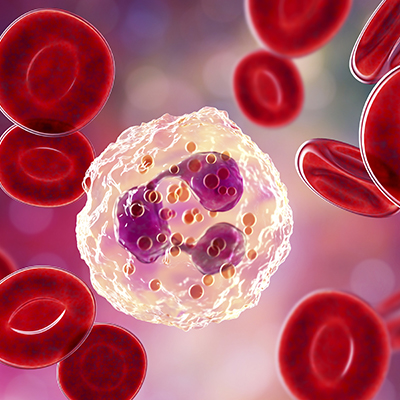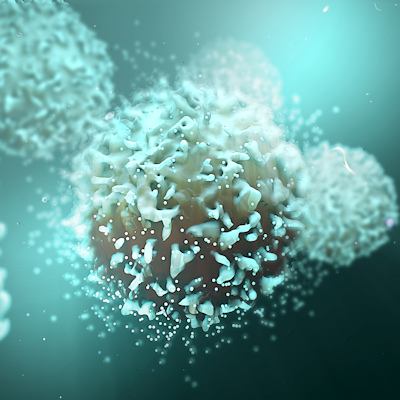August 22, 2022 -- Scientists at this week’s fall meeting of the American Chemical Society (ACS) report they have begun phase II clinical trials of an oral pill containing a compound that in mice, not only prevented lupus-like symptoms, but also reversed signs of organ damage caused by the disease and prevented death.
Lupus, an autoimmune disease that attacks organs and can be fatal, has no cure. While current treatments are designed to limit damage and ameliorate symptoms, many of these therapies aren't very effective, must be injected, and some have serious side effects, according to Alaric Dyckman, PhD, director at Bristol Myers Squibb (BMS), which funded the research.
Although Lupus is a devastating disorder, a "limited number of new therapies have been specifically developed for the disease over the past 50 years or more," Dyckman said in an August 22 recorded ACS media briefing.
Dyckman noted that while two approved therapies that were specifically developed for lupus reduce activity of specific immune system components -- AstraZeneca's anifrolumab blocks a receptor for the protein interferon, and GlaxoSmithKline's belimumab reduces the survival of B cells -- they are "large molecules which need to be injected, rather than taken orally, and they've shown only modest improvement for patients."
However, BMS researchers contend they have come up with a targeted compound -- afimetoran -- that can be taken orally and binds to toll-like receptors (TLRs) similar to anifrolumab, which interferes with interferon, and like belimumab, which controls damage from overactive B cells. In addition, afimetoran inhibits the production of multiple proinflammatory cytokines that cause tissue damage in lupus.
Researchers focused on TLR 7 and 8, cellular proteins that activate the immune system when they detect viral RNA or mistakenly identify an individual's own RNA as a threat. Dyckman contends that afimetoran is a "very effective blocker" of TLR 7 and 8 and that the discovery of the compound was the result of a year's long drug discovery effort that involved multiple teams of researchers at BMS.
"With afimetoran, not only could we prevent the development of lupus-like symptoms in mice before their disease onset, but we could actually reverse the symptoms and prevent death in animals that were days or weeks away from succumbing to the disease," Dyckman said in an August 21 statement. "We hadn't seen that reversal with other mechanisms we had evaluated, so we were particularly excited about that finding."
Researchers also found that afimetoran combined well with corticosteroid treatments in mice, with the potential that Lupus patients might be able to use lower doses of steroids, which are a mainstay of current treatments but are often accompanied by negative side effects at higher doses -- including weight gain, thinning bones, high blood pressure, diabetes, and increased risk of infection.
"The ability to reduce the level of steroids in lupus patients, or potentially eliminate the steroid use altogether, would be a significant advance for any medication," Dyckman said in the recorded ACS media briefing. "We believe that the notable results of afimetoran in the animal models of lupus, on its own and when combined with steroid, really bodes well for evaluation of afimetoran in patients with various forms of lupus."
Phase I clinical trials of afimetoran have been completed evaluating the safety of the small molecule in healthy volunteers, which showed that a low, once-daily oral dose of the compound could almost completely block signaling through TLR7/8. Currently, a phase II clinical trial is underway to test its effectiveness in lupus patients.
Copyright © 2022 scienceboard.net









